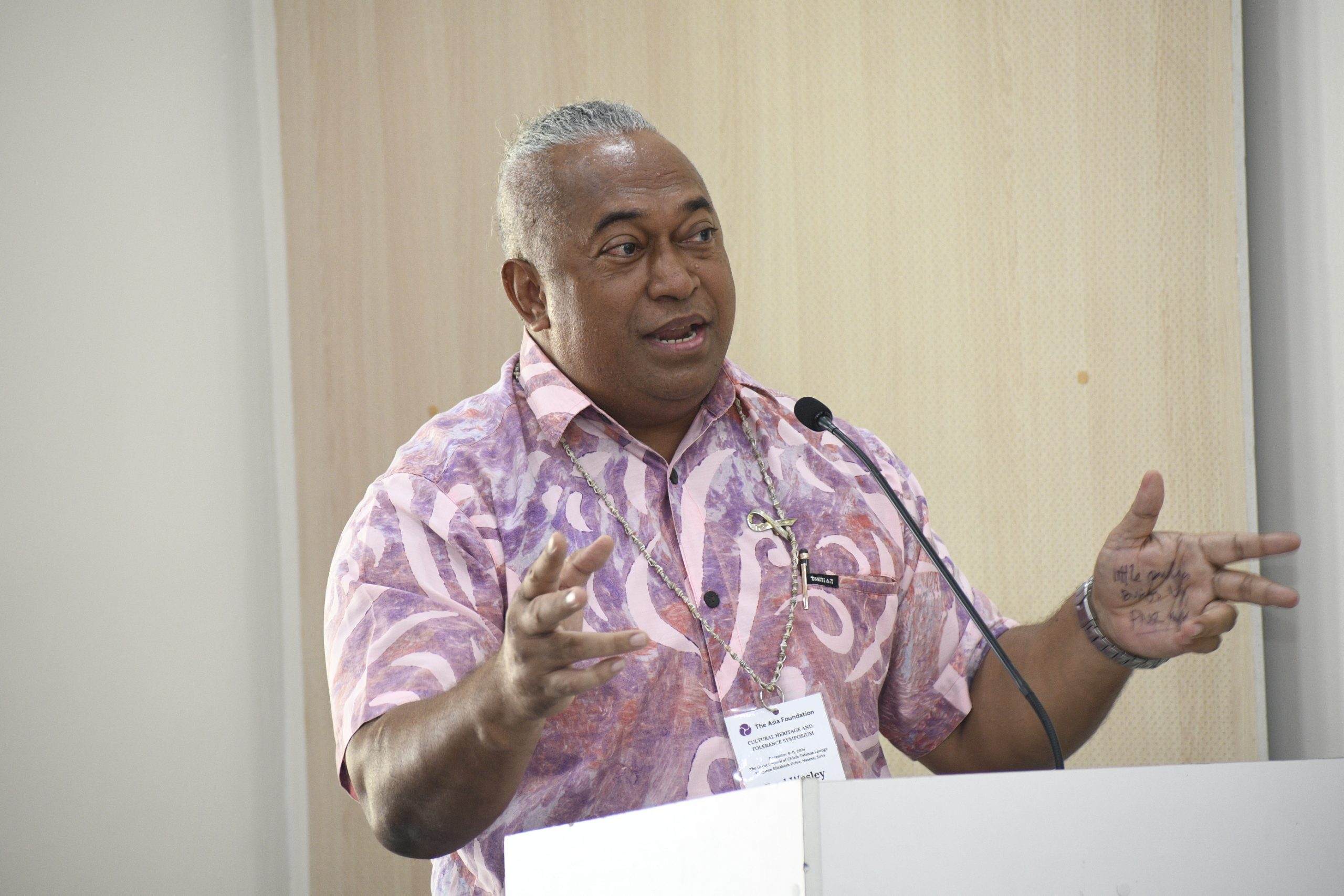Laws alone cannot secure the freedom of expression. For individuals to present their views without fear of penalty, a spirit of tolerance must permeate society.
These were the sentiments shared by editors of mainstream media organisations during a panel discussion on “Sustaining traditional practices in a modern world” hosted by the Asia Foundation on Tolerance.
The discussion, which brought together some of Fiji’s most prominent media figures, focused on the challenges of maintaining media freedom and cultural tolerance in an ever-changing global landscape.
Fred Wesley, editor-in-chief of The Fiji Times, was among the panelists who reflected on the relationship between media freedom, cultural tolerance, and the challenges faced by Fijian journalists.
“We live in a great country,” said Wesley.
As part of the conversation, Wesley reflected on the complex dynamics between media freedom, cultural acceptance, and the challenges that have shaped the modern Fijian media landscape.
Wesley began by highlighting Fiji’s rich cultural and religious diversity.
“We talk about tolerance.
“We talk about religious and cultural tolerance. Yet, we forget that we actually lack examples of this word tolerance,” he noted, pointing out that Fiji’s population is made up of people from different ethnicities, genders, and religions.”
Challenging reporting landscape for journalists
From the bustling streets of Suva to small communities across the islands, Fijians coexist, sharing meals, celebrations, and public spaces in ways that reflect the country’s multicultural identity.
However, Wesley argued that despite this outward appearance of tolerance, deeper issues of intolerance persist, particularly in the realm of media freedom.
“For 30 years, I have come through a period of intolerance of a different kind — intolerance of mainstream media,” he said, reflecting on the suppression of the media under the previous government.
Wesley said the media in Fiji had faced significant challenges, particularly during the past 13 years of political instability under military rule.
Under the previous regime, Wesley said the government imposed stringent laws to regulate the media, with severe penalties for content deemed harmful to national interests.
Section 24 of the Media Content Regulation Act, for instance, imposed hefty fines and jail terms for media organisations and editors who published material that could be seen as promoting communal discord or undermining national unity.
“There was no clarity at all, and anyone in government could say, ‘this is against the national interest, this is against the public interest.”
This environment of ambiguity led to self-censorship, with media organisations constantly second-guessing their coverage for fear of reprisal.
The laws were designed to suppress media voices and restrict independent reporting.
Journalists, including those at The Fiji Times, faced constant pressure to toe the government line. Even interviews with individuals who raised concerns, like the 2022 election storming allegations, went unreported or suppressed, as journalists feared legal and professional consequences.
Future of tolerance for media
Despite these challenges, Wesley expressed optimism about Fiji’s resilience.
“We are tolerant people.
“Even if we don’t realise it sometimes. We are very tolerant people.”
He pointed to the country’s celebration of various religious holidays, such as Christmas, Diwali, and Prophet Muhammad’s birthday, as examples of Fijians’ ability to embrace different cultures and traditions.
“Together, we have celebrated these days — showing that tolerance and acceptance are deeply ingrained in our society.”
Fiji, Wesley said, was fortunate to be far removed from the violent conflicts that plague other parts of the world, such as Ukraine or Sudan, where intolerance often leads to death and destruction.
“There is no tolerance in places like that.
“But we are different.”
He reminded the audience of the unique position Fiji holds in the Pacific and its relative peace compared with global hotspots.
However, he warned that this peace could easily be disrupted if Fijians did not continue to uphold the values of tolerance and acceptance in their everyday lives.
“We have to ensure that we continue to foster a society where every person, regardless of ethnicity, gender, or religion, feels valued and heard.”
This means promoting not only the freedom of expression but also a culture of mutual respect, where differing opinions and beliefs are tolerated and respected.
Wesley’s reflections also touched on the role of the media in shaping this culture.
For him, the media is a critical institution in fostering a dialogue about tolerance, resilience, and unity.
Despite the constraints and challenges journalists face, he underscored that independent media continues to be essential for the health of the nation’s democracy.
“The media must be able to hold power to account, speak truth to authority, and ensure that the voices of all people are heard,” he said.
As Fiji looks ahead, especially after the political changes in 2022, Wesley called for an overhaul of the country’s media laws to ensure greater transparency and protection for journalists.
He also stressed the need for media literacy, especially among younger generations, to ensure the public is well-informed and equipped to engage with complex social and political issues.
Wesley concluded by expressing his gratitude for the opportunity to work in a country that, despite its struggles, continues to be a beacon of hope for the region.
“We are a great country, and it is up to us, the people, to make it even greater. Tolerance, resilience, and the pursuit of truth must always guide us forward.”



